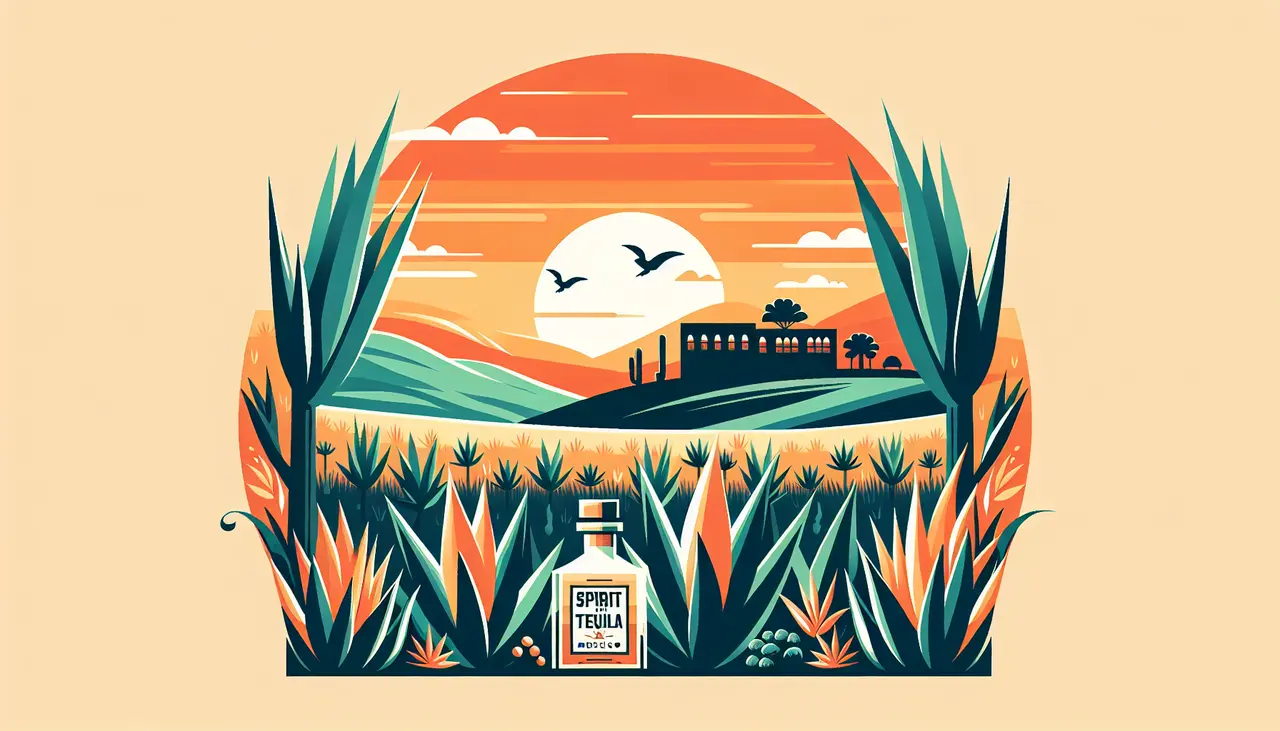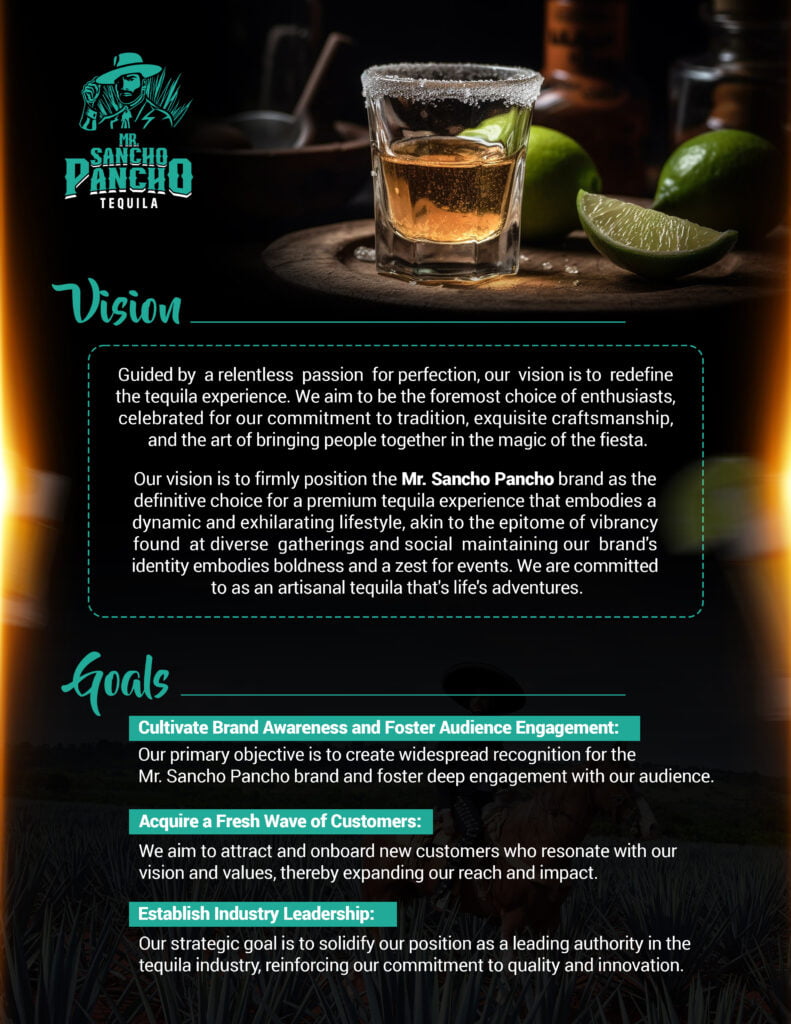Tequila, the spirit synonymous with fun and festivities, has an intricate production process that involves environmental considerations. As sustainability becomes a crucial global issue, it’s important to examine how this beloved drink is impacting our planet. This blog explores the sustainability of tequila and the efforts being made to ensure its production is environmentally friendly.
The Origin and Production Process of Tequila
Tequila is produced primarily in the region surrounding the city of Tequila, northwest of Guadalajara, and in the highlands of the western Mexican state of Jalisco. It is derived from the blue agave plant, and the production process includes several steps that have environmental implications.
The journey of tequila begins in the lush fields of Jalisco, where the blue agave plants stretch toward the sun, soaking up the rich Mexican soil. This plant, known scientifically as Agave Azul Tequilana Weber, is the soul of true tequila. The process of transforming these majestic plants into the drink we know involves a meticulous process. Initially, the mature agave plants, which can take up to a decade to grow, are harvested by skilled jimadores using a traditional tool known as the coa. You can discover more about tequila’s origin and production on Mr. Sancho Pancho’s website.
After being collected, the agave hearts or piñas are typically cooked in ovens or steamers, breaking down the fibers to release fermentable sugars. This cooking stage is crucial, not just for unlocking the flavors within the agave but for determining the tequila’s environmental footprint. Traditionally, wood-fired ovens were used, but modern sustainable distilleries are adopting renewable energy methods, cutting down on emissions and logical deforestation.
Fermentation follows, a critical step where the cooked agave is mixed with water and yeast. Increasingly, producers are optimally recycling the water used in this process to preserve the local environment. Distilleries like Mr. Sancho Pancho embrace techniques that ensure a keen eye on both quality and sustainability, ultimately yielding tequila that’s a true reflection of the land it hails from. Aging in oak barrels imparts rich and nuanced flavors while responsibly managing resources, enhancing the tequila’s character with environmental mindfulness.
Environmental Challenges in Tequila Production
The production of tequila can lead to significant environmental challenges, including agave monocultures, which affect biodiversity, and the use of water-intensive processes. Additionally, there is waste generated from the unused parts of the agave plant and the pollutants from distillation.
The rise of demand for tequila globally has inadvertently encouraged the practice of monoculture farming, where vast expanses of land are devoted solely to growing blue agave. This practice is detrimental, as it diminishes soil fertility and reduces biodiversity. To combat this, some distilleries are advocating for polyculture farming, where agave is grown alongside other crops. This diversification enriches soil composition and supports broader ecosystems, helping to maintain the balances needed for viable agriculture.
Water usage is another significant challenge. The process of making tequila requires substantial water input, particularly during fermentation and distillation stages. Forward-thinking distilleries are now employing water-saving techniques, such as closed-loop systems which recycle and purify water, reducing overall usage. As Mr. Sancho Pancho Tequila demonstrates, sustainable tequila making isn’t just a possibility—it’s becoming an industry standard.
Moreover, the waste products of tequila production, notably bagasse—fibrous residue left after juicing the agave—and vinasse, a liquid by-product, pose disposal problems. Innovative producers are finding ways to repurpose this waste, turning bagasse into compost or biomass fuel and treating vinasse to prevent environmental contamination. By investing in these technologies, the tequila industry can significantly reduce its environmental impact.
Sustainable Practices in the Tequila Industry
Many producers are now adopting sustainable practices, such as organic farming, water recycling, and using alternative energy sources. These efforts not only reduce environmental impact but also contribute to a higher quality product.
An increasing number of tequila brands are embracing organic farming methods, which forgo synthetic chemicals in favor of natural fertilizers and pest control. This approach not only protects the soil and local wildlife but also translates into a purer, more flavorful tequila. Mr. Sancho Pancho has taken pioneering steps in championing these methods, showcasing the intricate balance between tradition and modern sustainability.
Furthermore, energy conservation plays a pivotal role in sustainable tequila production. Distilleries are increasingly investing in solar panels and biomass energy to power their operations, dramatically reducing their carbon emissions. Initiatives also extend to packaging and distribution, where biodegradable materials and eco-friendly transport options are employed to lower the tequila’s environmental toll.
Some brands have even adopted the practice of agroforestry, planting additional trees in their agave fields to offset carbon emissions and enhance biodiversity. This not only sequesters carbon but also protects lands from erosion, demonstrating a commitment to environmental healing alongside product excellence. These initiatives underscore a growing understanding within the tequila industry: that sustainable practices are essential, not only for brand ethos but for the planet’s enduring health.
The Role of Certifications and Regulations
Certifications like the Tequila Regulatory Council (CRT) and organic labels ensure that tequila production adheres to standards that promote sustainability. These organizations monitor and regulate the process, encouraging producers to meet eco-friendly criteria.
The Tequila Regulatory Council (CRT) plays a pivotal role in ensuring that tequila maintains its protected status and high standards. This includes confirming the legality of agave sourcing and confirming production methods align with strict environmental guidelines. Similarly, obtaining organic certification involves meeting rigorous assessments that ensure no synthetic chemicals or harmful practices are employed throughout the tequila’s lifecycle.
Such certifications do more than just symbolize quality; they empower consumers. Knowing that a bottle of tequila meets either CRT or organic standards assures buyers that it has been produced responsibly. This transparency is increasingly important in today’s market where consumers are more informed and conscientious than ever about the environmental impacts of their purchasing decisions.
Furthermore, these certifications help protect traditional practices by ensuring that small producers, who often lean on artisanal methods passed down through generations, receive the recognition and market access they deserve. By supporting such producers, the tequila industry can foster a business environment that values heritage as much as sustainability, setting a vital precedent for future generations.
Consumer Influence on Sustainable Tequila
Ultimately, consumer choices drive industry practices. By supporting brands committed to sustainability, consumers can influence the market and encourage more producers to adopt green initiatives. An informed choice makes a difference.
As more consumers prioritize sustainability, their buying habits exert considerable pressure on tequila producers to adopt greener practices and transparency in production. This shift is evident as growing numbers of brands advertise their sustainable credentials proudly, a trend that helps elevate industry standards across the board. Consumers today wield significant power in the marketplace, and their demand for sustainable products can make notable changes.
Educational platforms and resources are vital in this process, empowering consumers with the knowledge to make informed purchases. Platforms like the Tequila Matchmaker, provide insights not just into flavor profiles but also sustainability practices, ensuring buyers connect with brands that align with their values.
Supporting sustainable tequila brands doesn’t just advocate for the environment; it also endorses communities and cultures rich in tradition and history. As consumers continue to discover these connections, they become intrinsic partners in these efforts. Brands like Mr. Sancho Pancho exemplify the fusion of tradition, sustainability, and excellence, offering a model for the rest of the industry to emulate in their journey toward a more sustainable future.
Balancing Tradition and Modern Sustainability
In conclusion, the sustainability of tequila production involves a balance of traditional methods and modern practices. While there are significant challenges in making tequila sustainable, the efforts of producers and regulatory bodies show promise. As consumers become more environmentally conscious, their choices can further drive the industry towards greater sustainability. By choosing responsibly-produced tequila, we can enjoy our favorite spirit while supporting a healthier planet. Visit Mr. Sancho Pancho to explore sustainably produced tequila options.















